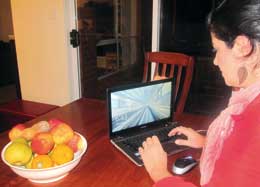03 June 2013
 Almost half of those who can access work emails through mobile devices will check those emails outside of their working hours, yet few do it for the love of the workplace.
Almost half of those who can access work emails through mobile devices will check those emails outside of their working hours, yet few do it for the love of the workplace.
This is one of the key findings of a new report: Morning, noon and night. The infiltration of work email into personal and family life, published by the University of South Australia’s Centre for Work + Life.
The report follows a survey of almost 1,400 people across Australia in February and highlights the extent to which mobile technology is blurring the boundary between the office and the family home.
Those surveyed said that knowing what is happening at work and being able to manage their workloads were the main reasons why they would check their emails. Just 10.6% of respondents said they checked work emails because they enjoyed being connected to work.
The survey found that managers and professionals are most likely to check their emails outside of work hours and most people would do so several times a day, with 17.8% also checking when on holiday.
Co-author of the report, Dr Natalie Skinner, explained that checking emails outside of work hours is a workload management strategy that most people undertake in response to high work demands that cannot be managed within a normal working day.
“These findings suggest that workers have internalised a responsibility for managing high workloads and ‘frame’ their constant connection with work email as though a personal choice about how they engage in work, rather than as a broader systemic issue reflecting unreasonable workloads and a workplace culture encompassing expectations of access and responsiveness to emails out of work hours”.
“Although workers do not report that they felt this practice was intrusive or tiring, there are very clear associations with work-life outcomes. Those workers who are very frequent (every hour or so) email checkers in non-work time also have the highest levels of work-life interference.
“The effect of checking emails outside of work hours also differs for men and women. Whilst the timing of email checking makes no difference to men’s work-life outcomes, for women checking emails before breakfast or on holidays is associated with the highest work-life interference of all groups in the study.”
Centre for Work + Life director, Professor Barbara Pocock, said: “This finding probably reflects gender differences in caring and domestic work. In Australia women perform much more of this work than men. It is probably the case that early mornings and holidays are times when multi-tasking between work and family or personal activities is particularly difficult or intrusive.”
Dr Skinner added: “Our challenge now, for managers, supervisors and ourselves as work colleagues is to match our intelligent technology with wise workplace cultures that recognise and respect other life domains and priorities – including personal, family and social time.”
The report can be downloaded here.
Contact for interview:
Barbara Pocock office 8302 4194 mobile 0414 244 606 email Barbara.Pocock@unisa.edu.au
Natalie Skinner office 8302 4250 email Natalie.Skinner@unisa.edu.au
Media contact: Will Venn office 8302 0965 email will.venn@unisa.edu.au



